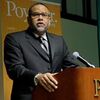It's Friday, that means it is panel time!
A recent MintPress article by Whitney Webb says the "United States military has rejected offers to resolve the growing humanitarian crisis in the Rukban refugee camp in Syria, which sits inside a 55 kilometer zone occupied by the US along the Syria-Jordan border. The US has also refused to let any of the estimated 40,000 refugees — the majority of which are women and children — leave the camp voluntarily, even though children are dying in droves from lack of food, adequate shelter and medical care. The US has also not provided humanitarian aid to the camp, even though a US military base is located just 20 kilometers (12.4 miles) away." What's going on here, and why is the US holding primarily women and children captive?
The White House on Friday warned Russia and other countries backing Venezuelan President Nicolas Maduro against sending troops and military equipment to Venezuela, saying the United States would view such actions as a "direct threat" to the region's security. US Secretary of State Mike Pompeo has been given a list of options to respond to Russia's growing presence in Venezuela in support of Maduro, including new sanctions, said Elliott Abrams, the US special representative for Venezuela.
UK Prime Minister Theresa May's Brexit deal was beaten down for an amazing, unprecedented, pitiful third time by the British Parliament on Friday, with all bets off now on when or how the United Kingdom will leave the European Union. The EU had given Britain until the end of this week to approve the withdrawal agreement. Now Britain has until April 12 to propose a new way forward, crash out of the bloc without a deal or beg for a long extension. May called the results of the day's votes "grave."
After taking last weekend to pore over the Mueller report, US Attorney General William Barr sent Congress his summary of the "principal conclusions" from the special counsel's 675-day investigation into the Trump campaign's slleged ties to Russia. Barr says he and Deputy Attorney General Rod Rosenstein concluded that the evidence "is not sufficient to establish that the President committed an obstruction-of-justice offense," noting that the government would have to prove such a case "beyond a reasonable doubt." This is not the Mueller report or even a well-based summary, but folks are acting as though Barr's letter is dispositive.
Facebook is banning white nationalism and white separatism from its social network following criticism that it had not done enough to eliminate hate speech on its platform. The social media giant said in a blog post Wednesday that conversations with academics and civil rights groups convinced the company to expand its policies around hate groups.
"Today we're announcing a ban on praise, support and representation of white nationalism and separatism on Facebook and Instagram, which we'll start enforcing next week," the company wrote in the post. "It's clear that these concepts are deeply linked to organized hate groups and have no place on our services." Under Facebook's change, people who search for terms associated with white supremacy will instead see a link to the page of Life After Hate, a nonprofit that helps people to leave hate groups, the company said.
GUESTS:
Whitney Webb — Journalist and a staff writer for MintPress News.
Jim Kavanagh — Political analyst and commentator and editor of The Polemicist.
Michelle Hudgins — Communications strategist, producer, media consultant and writer.
Caleb Maupin — Journalist and political analyst who focuses his coverage on US foreign policy and the global system of monopoly capitalism and imperialism.
We'd love to get your feedback at radio@sputniknews.com

